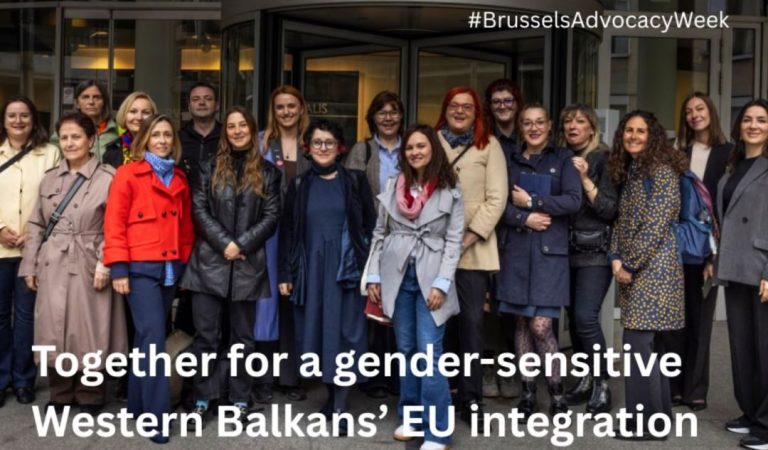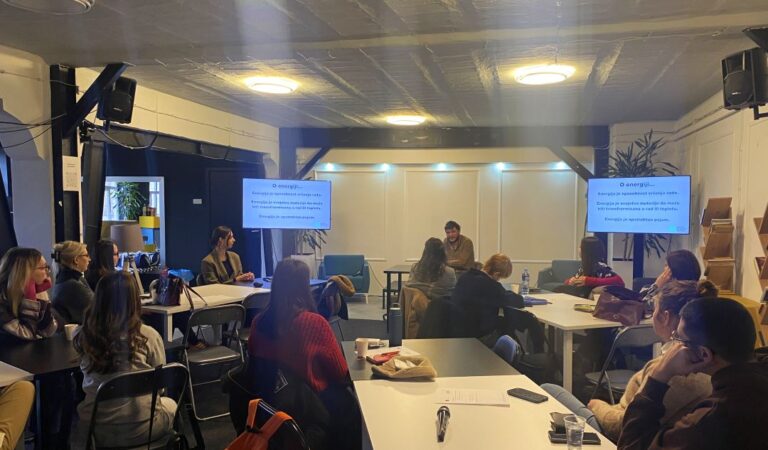This morning members of the Economic Social Cultural Rights-Net submitted a legal opinion to the A 11 – Initiative for Economic Social and Cultural Rights to use in their proceedings at the Serbian Constitutional Court calling for the assessment of the constitutionality of the Law on Social Card.
The legal opinion draws on international human rights standards and examples of the human rights ramifications of digitisation in similar contexts to examine the Law on Social Card. It finds that this law by allowing for the extensive data processing of social security applicants and related persons, appears to not only contradict data processing principles but also to impact the right to social security and on the right to equality and non-discrimination due to the disproportionate impact this law has on Roma communities .
“The introduction of new digital technologies and automated decision-making processes within welfare programs has already had devastating human rights impacts all around the world, and these are especially felt by historically marginalized groups. From the United Kingdom to India, digitalized welfare systems have exacerbated exclusion, leaving some beneficiaries without access to critical, life-saving entitlements,” says Victoria Adelmant of the Digital Welfare State & Human Rights Project (Center for Human Rights and Global Justice at New York University School of Law) and one of the organizations co-authors of the legal opinion.
The Law on Social Card allows for the consolidation of extensive amounts of data on social security applicants into one single register and this brings concerns over how the system could be used as a digital surveillance system targeted at the most marginalised members of society. The legal opinion also examines how there has to date been a lack of transparency over the automated decision-making system employed meaning it has not yet been possible to independently verify whether the system conforms to human rights standards.
“Serbia’s social protection system should be centred on the rights of applicants and be sensitive to people’s life circumstances. Currently the Social Card system is instead just processing applicants data without providing the opportunity for individuals to input and provide context. This means that the system is completely dehumanised and could be used as a way to deny applicants from accessing the social security system that they are eligible for.”,” says Danilo Ćurčić from A 11 Initiative.
“The Social Card law is likely to harm the most marginalized people in Serbia. The authorities must urgently clarify how they are using the system to assess eligibility for financial support, and ensure that individual rights are not being violated. The vast amount of personal data being processed, coupled with an inability to amend data once it is in the system, means it is likely the automated system will make errors when assessing eligibility for social security. In such cases, individuals or families may face long delays if they challenge these mistakes and be denied crucial financial support from the state while doing so,” said Imogen Richmond-Bishop, Amnesty Tech’s Researcher on Technology and Economic, Social and Cultural Rights.
Background:
The Law on Social Card processes exactly 135 data on citizens who are beneficiaries of rights from the social protection system or those citizens who want to exercise these rights. The processing of such a large amount of personal data does not exist in any other life situation in the Republic of Serbia and indicates a violation of one of the basic principles of personal data protection – the principle of data minimization and restrictions on the purpose of processing. At the same time, the provisions of the Law on Social Card do not clearly prescribe the manner in which this processing is performed, and leave room for violating the rights of the poorest citizens of Serbia.
The legal opinion was co-authored by Amnesty International, Centro de Estudios de Derecho, Justicia y Sociedad (Dejusticia), the Digital Welfare State & Human Rights Project (DWS Project) at the Center for Human Rights & Global Justice at New York University School of Law, the European Roma Rights Center (ERRC), the Initiative for Social and Economic Rights (ISER), Kenya Human Rights Commission (KHRC), and the Program on Human Rights and the Global Economy (PHRGE) at Northeastern University. It was coordinated by the Economic Social Rights Network (ESCR-Net)
You can find the legal opinion here.
You can find more information about the Social Cards campaign here.
Follow the discussion on social media at #AntiSocialCards



